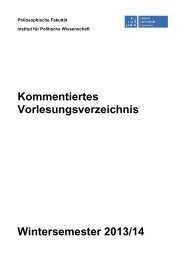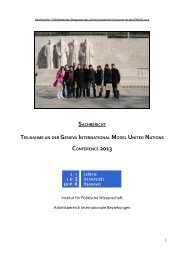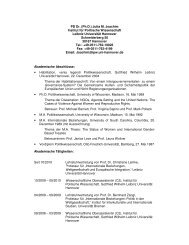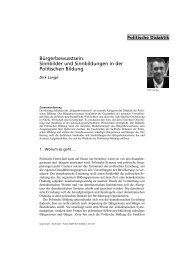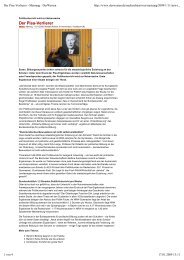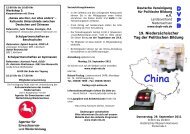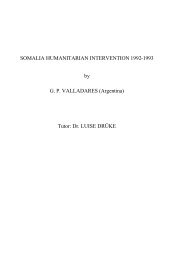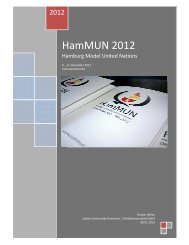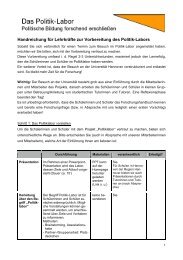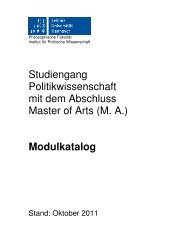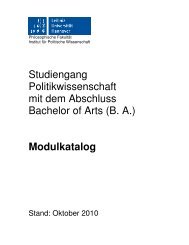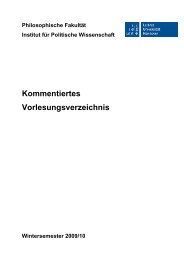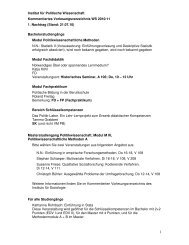Preventive Action for Refugee Producing Situations
Preventive Action for Refugee Producing Situations
Preventive Action for Refugee Producing Situations
Create successful ePaper yourself
Turn your PDF publications into a flip-book with our unique Google optimized e-Paper software.
192 Chapter 5<br />
security. 440 The traditional meaning of "national security" is protection of a<br />
state and its population, government, and borders from disruption by outside<br />
<strong>for</strong>ces. Helmut Schmidt, the <strong>for</strong>mer Chancellor of the Federal Republic of<br />
Germany, broadened the concept of national security to embrace issues of<br />
monetary stability, worldwide inflation, unemployment, and other ills, which<br />
have lent a new economic dimension to the term. 441<br />
On the one hand, we recognize that security is imperative <strong>for</strong> the well-being<br />
of the state and its citizens. On the other hand, in practice, we find that at times<br />
portions of the population remain unprotected by the authorities in power<br />
within their own country. In such cases, the state will often resist intervention<br />
by claiming its own security is at stake, even if it does so at the expense of<br />
some of its citizens. Human rights "often lose out to the interest of the states on<br />
spurious grounds such as national security." 442 It is not the nation's security that<br />
is really being threatened, but only its license to abuse its people.<br />
States cling tightly to the issue of national security when it suits them, but<br />
may drop it quickly when other considerations take precedence. How<br />
groundless the "national security defense" can be is illustrated by the example<br />
of what has happened in Vietnam. Subsequent to the 1988 negotiations over the<br />
possible voluntary repatriation of Vietnamese persons not found eligible <strong>for</strong><br />
refugee status, the Vietnamese authorities have indicated <strong>for</strong> the first time since<br />
1975 that they would be prepared to allow those persons to return home, and<br />
that they would soften their previous position regarding these refugees as a<br />
threat to national security. In order to obtain badly needed economic aid and<br />
emerge from its political isola tion, Vietnam has abandoned its application of<br />
article 89 of its 1986 penal code on punishment <strong>for</strong> persons having left Vietnam<br />
"illegally."<br />
the community from serious danger.' See Goodwin-Gill, The <strong>Refugee</strong> in International<br />
Law, p. 106.<br />
440 Art 33 (1,2), concerning expulsion of refugees of the 1951 UN Convention Relating<br />
to the Status of <strong>Refugee</strong>s make explicit mention of the restriction on grounds<br />
of national security: "1. The Contracting States shall not expel a refugee lawfully<br />
in their territory save on grounds of national security or public order. 2. The expulsion<br />
of such a refugee shall be only in pursuance of a decision reached in accordance<br />
with due process of law. Except where compelling reasons of national<br />
security require, the refugee shall be allowed to submit evidence [to]... the competent<br />
authorities." See the text of the Convention in HCR/INF/29/Rev.3.<br />
441 Amos A. Jordan and William Taylor, Jr., American National Security: Politics<br />
and Process, 1981, p. 3.<br />
442 Van Boven and Ramcharan, "Problems in the Protection of Human Rights at the<br />
International Level," p. 105.<br />
Legal Justification 193<br />
Just be<strong>for</strong>e the October 1988 plebicite the Chilean authorities on September<br />
2, 1988 lifted the ban on nationals to return home, many of whom<br />
had been expelled from or fled the country during the time after the 1973<br />
coup d'etat on grounds of national security. 443<br />
Not only can the doctrine of "national security" be invoked to prevent<br />
outsiders from intervening in a country's human rights abuses, but it can also<br />
be the weapon that the national authorities turn against those supposedly<br />
under their protection. Examples are alarmingly easy to find. Suspecting that<br />
members of the Salvadoran guerrilla movement had infiltrated the refugee<br />
camp Colomoncagua, the Honduran army conducted a military incursion on<br />
August 31, 1985 into the camp <strong>for</strong> "reasons of national security." 444 Two<br />
refugees were killed, ten detained, and twenty-five injured. In 1978, seven<br />
Vietnamese boat people were found with firearms on board a boat arriving<br />
in Malaysia. They were detained under the Malaysian Internal Security Act<br />
and only after persistent intercessions on the part of UNHCR be<strong>for</strong>e the<br />
Malaysian authorities were these refugees given access to due process of<br />
law.<br />
There are no intrinsic reasons that international preventive actions should<br />
be viewed as a risk to national security. The policy proposal detailed in the<br />
previous chapter consists of humanitarian and political actions to en<strong>for</strong>ce<br />
the international accountability of states to international organizations both<br />
<strong>for</strong> the welfare of their people and <strong>for</strong> their behavior toward resident aliens.<br />
5.1.2. The doctrine of domestic jurisdiction<br />
States create their own rules governing their population, territory, and traffic<br />
across their borders. 445 In countries from which refugee flows<br />
________________________________<br />
443 "Chile allows exiles to return," Boston Globe, 2 September 1988.<br />
444 "Honduras Reported to Raid <strong>Refugee</strong>s," The New York Times, 5 September<br />
1985; "The Killing Catches Up to <strong>Refugee</strong>s in Honduras, The New York<br />
Times, 8 September 1985.<br />
445 "Typische Bereiche innerer Zuständigkeit - Staats<strong>for</strong>m, Verfassung,<br />
Staatsangehö-rigldet. Wirtschaftsrecht, Zoll, Aus- und Einwanderung - sind<br />
auch weiterhin gewohnheitsrechtlich zu beachten, soweit sie nicht vertraglich<br />
eingeengt oder völlig internationalisiert sind. Die Beziehungen zwischen Staat<br />
und Individuum, dessen Stellung in der nationalen Gesellschaft, sind, wie die<br />
Verfassungsordnung Überhaupt, traditionell typische Bereiche innerer<br />
Zuständigkeit" Helmut Rumpf, Der internationale Schutz der Menschenrechte<br />
und das Interventionsverbot (Baden-Baden: Nomos, 1981), p. 23.



